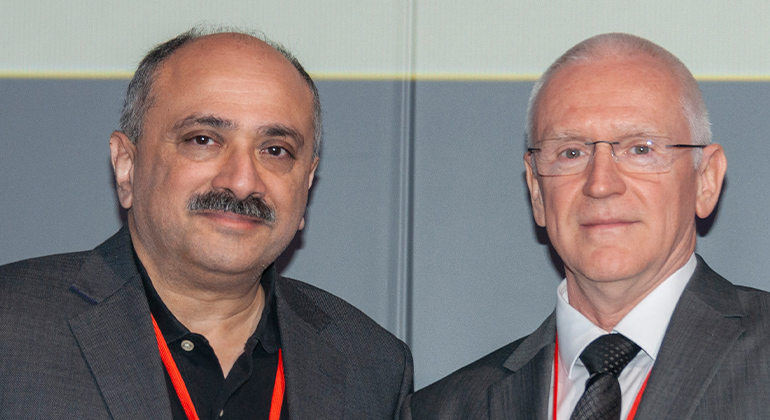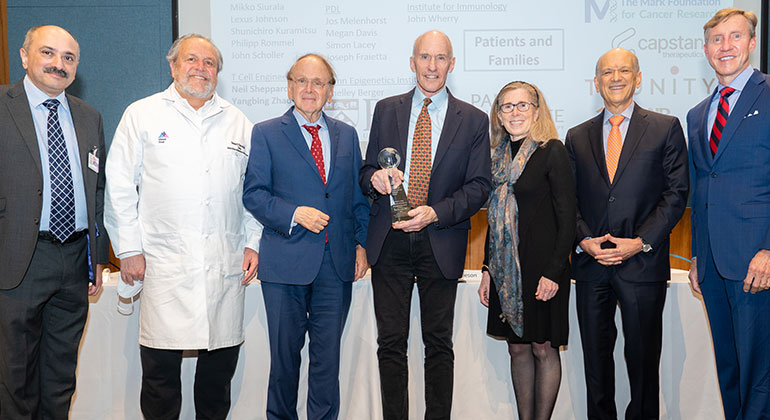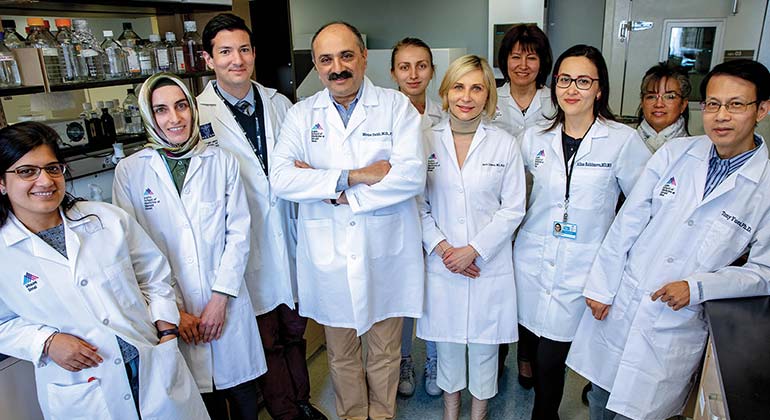Survey Shows Physicians Agree Medicare Reimbursement is Inequitable, Disagree on How to Fix It
Mount Sinai researchers have found that physicians agree Medicare reimbursement is flawed, but there is little consensus on how to reform it.
In the first-ever nationwide survey of physicians to determine their opinions regarding reimbursement reform, researchers at Mount Sinai School of Medicine have found that the majority of physicians think Medicare reimbursement is inequitable. However, there is little consensus on how to reform it. The data are published in the October 25 issue of the Archives of Internal Medicine.
"Physicians generally agree that reimbursement reform is critical, but there is no common ground on how to accomplish that," said Alex D. Federman, MD, MPH, Associate Professor of Medicine at Mount Sinai School of Medicine, and lead author on the study. “Our study found that among major reform proposals, only financial incentives to improve health care quality and efficiency had widespread support from the medical community.”
As part of the health care reform discussion, policymakers are evaluating physician reimbursement as one way to reduce costs while improving quality of care, as their clinical decisions are a widespread contributor to rising expenditures.
Researchers at Mount Sinai School of Medicine conducted the survey from a random national sample of 2,518 eligible physicians, with 1,222 physicians responding between June 25 and October 31, 2009. They evaluated physician opinion of various reform proposals, including financial bonuses for meeting quality standards and penalties for substandard care, bundling payments into a fixed amount, and promoting accountable care organizations, which are extended networks of hospitals and outpatient providers.
Four out of five physicians thought that Medicare reimbursement was inequitable, with 40 percent strongly believing that some procedures are compensated too highly and others are compensated insufficiently.
Nearly half of physicians strongly or somewhat supported the use of financial incentives for improved quality of care as a means of reforming reimbursement. Overall, 41.6 percent of physicians supported shifting payments from procedures to disease management and counseling. The majority of physicians were opposed to bundling payments (69.1 percent) but in favor of increasing pay for generalists (79.8 percent). However, only 39.1 percent of specialists would agree to offset their own reimbursement by three percent to achieve this reform.
“In general, physicians believe that reimbursement reforms are needed, but there is inconsistent agreement on what to do about it. The most popular approach is through financial incentives that would reward quality of care and efficiency. Other approaches, like bundling costs of care and shifting reimbursements are less popular. The data indicate that policy makers will need to work closely with physicians and physician groups to avoid a provider backlash when reimbursement reforms are implemented.”
The authors conclude that more research is required to determine where physicians are willing to compromise in order to reach consensus in reimbursement reform. “Finding reform proposals that are acceptable to most physicians will be critical in reducing exorbitant health care expenditures,” said Dr. Federman.
About The Mount Sinai Medical Center
The Mount Sinai Medical Center encompasses both The Mount Sinai Hospital and Mount Sinai School of Medicine. Established in 1968, Mount Sinai School of Medicine is one of few medical schools embedded in a hospital in the United States. It has more than 3,400 faculty in 32 departments and 15 institutes, and ranks among the top 20 medical schools both in National Institute of Health funding and by U.S. News & World Report. The school received the 2009 Spencer Foreman Award for Outstanding Community Service from the Association of American Medical Colleges.
The Mount Sinai Hospital, founded in 1852, is a 1,171-bed tertiary- and quaternary-care teaching facility and one of the nation's oldest, largest and most-respected voluntary hospitals. U.S. News & World Report consistently ranks The Mount Sinai Hospital among the nation's best hospitals based on reputation, patient safety, and other patient-care factors. Nearly 60,000 people were treated at Mount Sinai as inpatients last year, and approximately 530,000 outpatient visits took place.
For more information, visit www.mountsinai.org. Follow us on Twitter @mountsinainyc.
About the Mount Sinai Health System
Mount Sinai Health System is one of the largest academic medical systems in the New York metro area, with 48,000 employees working across seven hospitals, more than 400 outpatient practices, more than 600 research and clinical labs, a school of nursing, and a leading school of medicine and graduate education. Mount Sinai advances health for all people, everywhere, by taking on the most complex health care challenges of our time—discovering and applying new scientific learning and knowledge; developing safer, more effective treatments; educating the next generation of medical leaders and innovators; and supporting local communities by delivering high-quality care to all who need it.
Through the integration of its hospitals, labs, and schools, Mount Sinai offers comprehensive health care solutions from birth through geriatrics, leveraging innovative approaches such as artificial intelligence and informatics while keeping patients’ medical and emotional needs at the center of all treatment. The Health System includes approximately 9,000 primary and specialty care physicians and 11 free-standing joint-venture centers throughout the five boroughs of New York City, Westchester, Long Island, and Florida. Hospitals within the System are consistently ranked by Newsweek’s® “The World’s Best Smart Hospitals, Best in State Hospitals, World Best Hospitals and Best Specialty Hospitals” and by U.S. News & World Report's® “Best Hospitals” and “Best Children’s Hospitals.” The Mount Sinai Hospital is on the U.S. News & World Report® “Best Hospitals” Honor Roll for 2024-2025.
For more information, visit https://www.mountsinai.org or find Mount Sinai on Facebook, Instagram, LinkedIn, X, and YouTube.

Researchers Identify Potential Target for Treatment Among Patients With Type 2 Diabetes
Aug 04, 2022 View All Press Releases
Mount Sinai Researcher Receives Prestigious International Award
Jul 06, 2022 View All Press Releases



